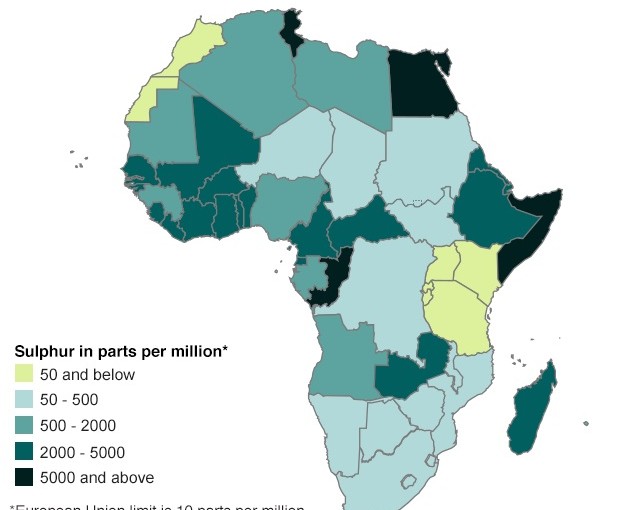Mozambique’s $6.4 billion hydropower plan to get World Bank funding - Bloomberg
SADC discusses fuel sulphur content in Maputo, Mozambique

BBC / Unep
Representatives of companies and institutions in the Southern African Development Community (SADC) fuel are meeting today and tomorrow in Maputo for a seminar on the “Promotion of low sulphur content of fuels in Mozambique and neighbouring countries”.
The event is co-organised by the Ministry of Mineral Resources and Energy and the United Nations Environment Programme (UNEP), and was to be opened by the Mozambican minister for the sector, Leticia Klemens who, however, was not able to attend the opening ceremony, reports Zitamar.
What’s so bad about sulphur?
The sulphur particles emitted by a diesel engine are considered to be a major contributor to air pollution, which the World Health Organisation (WHO) ranks as one of the top global health risks.
It is associated with heart disease, lung cancer and respiratory problems.
The WHO says that pollution is particularly bad in low and middle income countries.
Reducing the sulphur content in diesel would go some way to reducing the risk that air pollution poses.
What’s being done about it?
Unep is at the forefront of trying to persuade governments to tighten up the sulphur content regulations and is gradually making progress.
In 2015, the East African Community introduced new regulations for Kenya, Uganda, Rwanda, Burundi and Tanzania. Diesel cannot now have more than 50ppm in those countries.
It is clear that the situation has improved since 2005.

Unep’s Jane Akumu is currently working with the West African regional grouping Ecowas and its Southern African counterpart Sadc to try and change the regulations.













Leave a Reply
Be the First to Comment!
You must be logged in to post a comment.
You must be logged in to post a comment.